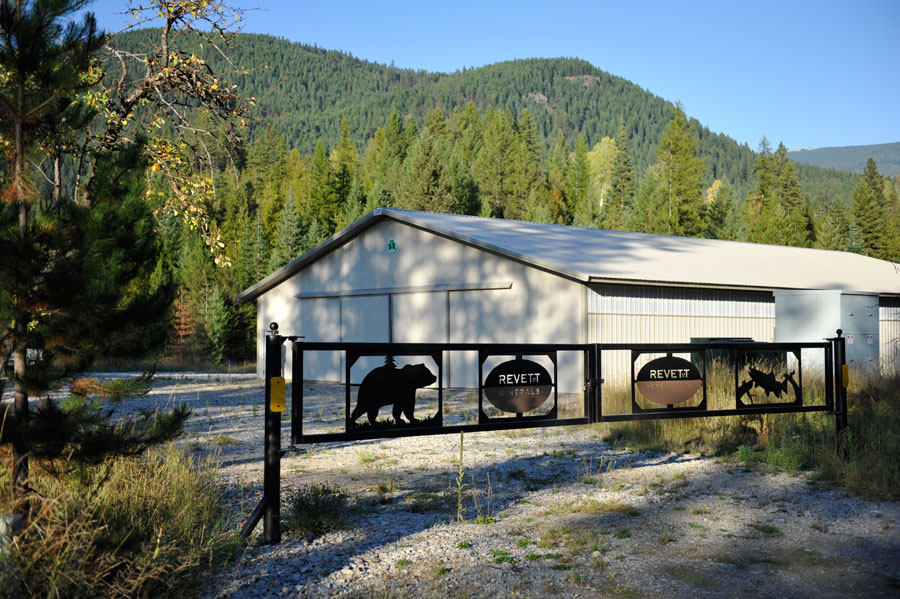A Lewis and Clark County District Court judge has struck down a water permit issued by the Montana Department of Natural Resources and Conservation for the proposed Rock Creek Mine near Noxon.
The decision by Judge Kathy Seeley last week is the latest in a series of setbacks for Idaho-based Hecla Mining Company, which is trying to permit and develop two copper and silver mines in Northwest Montana. But environmental groups cheered the decision and said it was a major step forward in protecting the Cabinet Mountain Wilderness, which sits directly above the proposed mines.
“The court’s rulings safeguards some of the purest waters in the lower 48 from the destructive impacts threatened by the Rock Creek Mine,” said Earthjustice attorney Katherine O’Brien. “The ruling also affirms that the state’s job is to protect Montana’s waters from the benefits of all Montanans — not to give those waters away to corporate interests without taking a hard look at the impacts.”
The Associated Press reported Monday that the DNRC planned to challenging the ruling.
Earthjustice filed the lawsuit on behalf of four environmental groups, including the Clark Fork Coalition, Rock Creek Alliance, Earthworks and the Montana Environmental Information Center.
In 2016, the DNRC issued a water use permit to Hecla and ruled that the proposed mine, which is projected to produce up to 10,000 tons of ore daily, would not negatively impact the environment. But environmental groups have argued that the mine would drain water from wilderness streams and harm bull trout and other native fish. The groups filed a complaint against the DNRC’s decision and an administrative hearing was held regarding the claims in 2018. During that hearing, Hecla’s Montana subsidiary, RC Resources Inc., filed a successful motion to dismiss the claims. The environmental groups then filed a lawsuit against DNRC in Lewis and Clark County District Court.
The court’s ruling concluded that DNRC had violated state law by ignoring evidence that groundwater pumping for the mine would permanently dewater some wilderness streams.
“The court’s decision is a victory for the Cabinet Mountains and the Clark Fork watershed,” said Clark Fork Coalition Executive Director Karen Knudsen “It’s also a victory for all Montanans, who share an equal interest in protecting and preserving out state’s outstanding water resources.”
Last week’s decision is the latest in a long line of legal setbacks for the developers of the Rock Creek and Montanore mines. Last year, the state of Montana moved to label Hecla’s president and CEO, Phillips S. Baker, a “bad actor” for his involvement with a mine cleanup in central Montana in the 1990s. The label means Baker cannot operate or develop mines in the state. Baker and Hecla are currently fighting the decision.
The earth below the Cabinet Mountains have long been eyed by mining companies as a prime source of copper and silver. Since the 1980s, numerous companies have tried to bring two different mines, one near Noxon and the other near Libby, to production but have been delayed by a gamut of legal, environmental and economic forces. Proponents of the projects have said opening either of the Rock Creek or Montanore mines would result in an economic boon for one of the most depressed areas of Montana.
Taken together, both Montanore and Rock Creek have the potential to produce more than 500 million ounces of silver and 4 billion pounds of copper in their lifetime. The two deposits are separated by about 7,000 feet of earth and a fault line, suggesting that at one time it was actually one ore body. Many consider the combined deposit beneath the Cabinet Mountains to be one of the largest untapped copper and silver resources on Earth.
The Beacon was unable to reach Hecla for comment. However, in a statement to the Associated Press, Hecla spokesperson Luke Russell said the decision would not impact the company’s exploratory work.
